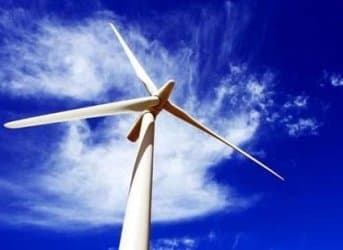Despite rising electricity surcharges due to renewable energy subsidies, Germans on 22 September voted out the only political party that stood in the way of renewable energy efforts and would have pressed to scrap the country’s feed-in tariff law.
In a clear victory for renewable energy efforts, Germany’s center-right Free Democratic Party (FDP) has failed to meet the 5% minimum threshold in the federal elections and has been eliminated from any coalition-building process.
German Chancellor Angela Merkel's Christian Democratic Party (CDU) won the most votes—though falling short of a majority—and will now form a coalition with one of the other three main parties, the Greens, the Social Democrats (SPD) and The Left.
The FDP, which is for all intents and purposes Germany’s libertarian party--would have put an end to “Energiewende”—a citizens’ movement that is challenging the oligopoly in the energy sector and pushing for a transition to renewables.
The FDP, which has been in a governing coalition with Merkel’s CDU until now, was seeking to scrap energy efficiency targets and focus singularly on carbon emissions, allowing big utilities to act as decision-makers in this arena.
Related article: Syria and Solar Panels
“The extreme positions of the FDP regarding the energy transition and the Renewable Energy Sources Act (EEG) have damaged the important renewable energy economy,” Association of Renewable Energy (BEE) CEO Dr. Hermann Falk said in a statement. “This has contributed to climate change, and energy policy can be designed without the FDP for four years now.”
Germany is Europe’s biggest electricity market, and the introduction of feed-in electricity tariffs have were meant to encourage the use of new energy technologies such as wind power, biomass, hydropower and geothermal power.
Wind, solar and biomass energy producers are guaranteed fixed feed-in tariffs above market price for 20 years. These subsidies have led to an investment boom that some claim has catapulted the amount of renewable energy used in Germany for power generation from 15% in 2008 to 23% in 2012.
Along with this progress, however, the surcharge on electricity has risen sharply—by 47% just within the last year. The government has also recently calculated that the surcharge for electricity will rise again—from the current 5.3 eurocents per kilowatt-hour to 6.2 eurocents in 2014.
Government subsidies for the plan amounted to $22.7 billion in 2012 and could reach $40.5 billion by 2020. For now, the government has shielded about 700 companies from increased energy costs to protect their competitive position in the global economy.
Industrial users still pay significantly more for electricity in Germany than their counterparts in Britain or France, and almost three times as much as those in US.
Related article: New Energy Storage System Turns Wind Energy into Clean Natural Gas
With consumers having to pay about $270 each in surcharges this year to subsidize new operators of renewable power, the hardest hit are low-wage earners, retirees and people on welfare.
ADVERTISEMENT
Ahead of elections, government officials had promised to reform the country’s clean-energy subsidy law and tweak the power market playing field a bit.
Some companies have urged the new government to cut renewable energy subsidies or they will cease to be competitive.
By. Charles Kennedy of Oilprice.com



















Any German government that survives the next decade will be forced to burn more coal, burn more gas, and go back on the promise to abandon nuclear power.
Green hopes and dreams are one thing. Keeping an economy going, and keeping people warm and fed require a firmer grip and more sober outlook than German voters have achieved so far. Pain will be the teacher that will not abandon the Germans, no matter how long it takes to learn the lessons.
Germans are favoring wind+solar while US+UK is working with Big Oil.
It is going to be an interesting decade.
My bets are on Wind.